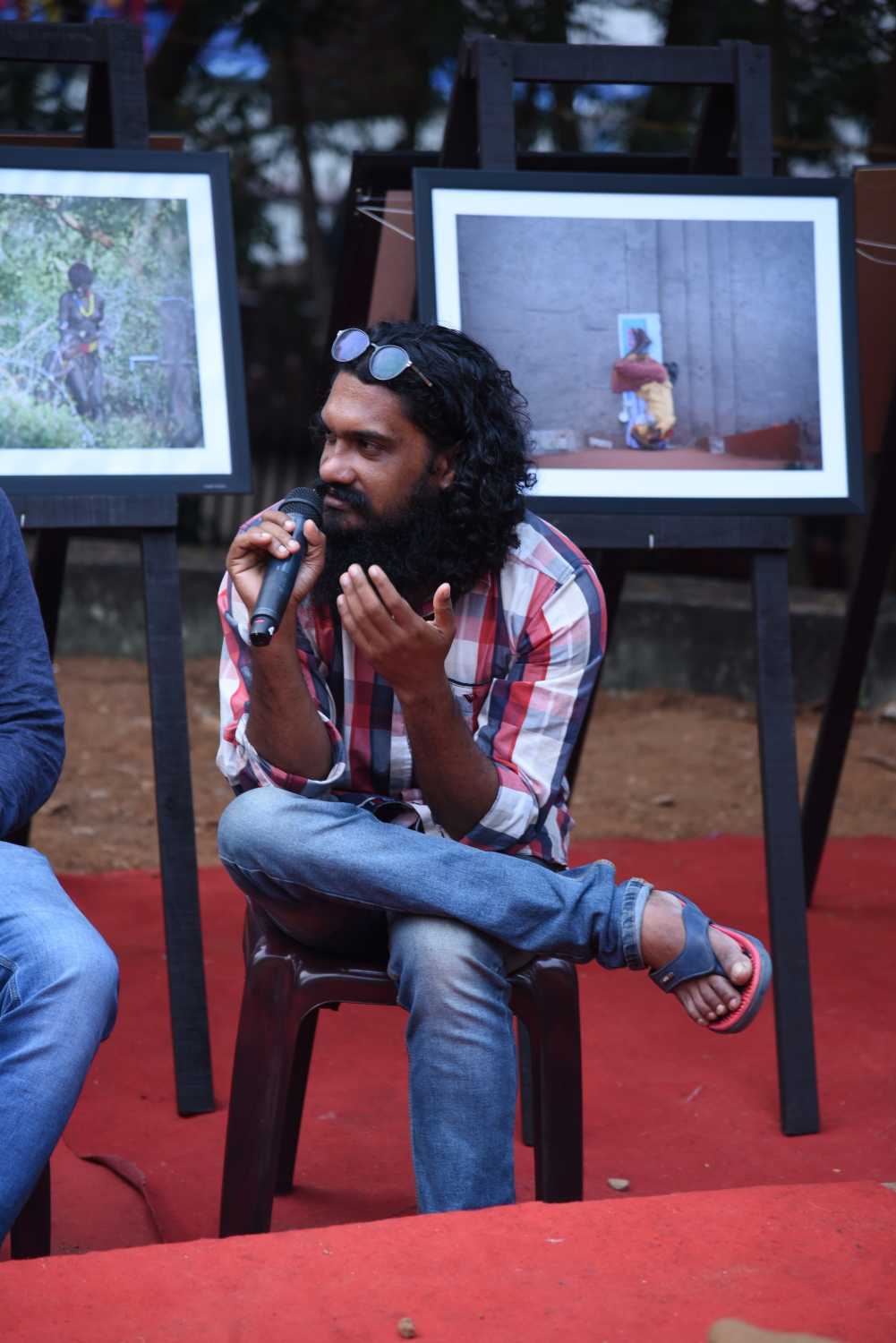Cinestaan.com caught up with the filmmaker behind the Kazhcha Indie Film Festival who spoke about wrapping up and his plans for the future.
We will look for good films which are rejected: Sanal Kumar Sasidharan on future of KIFF
Thiruvananthapuram - 12 Dec 2017 13:59 IST


Sukhpreet Kahlon
After four days of frenetic activity, the Kazhcha Indie Film Festival (KIFF) 2017 came to an end on 11 December. With screenings, discussions, a VR screening room, innovative chat sessions, panel discussions and a film competition, KIFF 2017 came to an end. A festival born out of protest, KIFF created a space for acclaimed films with exciting content that was largely ignored in India.
Cinestaan.com caught up with filmmaker Sanal Kumar Sasidharan, the man behind the festival who spoke about wrapping up and his plans for the future.
It's the last day of the festival. What are your thoughts?
I can’t believe that it is ending today. The festival has seen a huge momentum in the past two days and I am getting a lot of response from outside, from people who couldn’t come here, who are congratulating me. I feel that this is an indication that the festival will grow. So I am feeling very happy.
Lijo Jose Pellissery: KIFF is a space where independent films can reach much more easily
We have seen packed screenings for almost all the films and the audience and the filmmakers alike have appreciated the quality of the programming at KIFF where each film is a gem and one doesn’t want to miss out on them. What do yo want to say about this kind of a response?
Any festival has many films. Consider International Film Festival of Kerala (IFFK) which has about 200 films and out of 200 films, you can’t expect more than 50 films to be exceptional. But here, there are very few films, but all of them are considered very good, so in a way it is good. We will select only 15-20 films next year as well. We need to programme it and we need to show independent films from pan-India, not just films from Kerala. We need to represent our huge, diverse country and give attention to films from our country. Because we say that India is my country and play the national anthem before every film, but that is not the way to inculcate a feeling of nationalism or patriotism. You need to exchange culture.
We are totally blind to the culture, language of the Northeast. It is only when we see films from there that we will understand the way they live their lives. This is very important and I feel that we can play a greater role in the coming year.
KIFF 2017: 'Important to do what we can without worrying what we can achieve'
You’re off to Costa Rica with your film, so what are the plans for the future — for you as well as the festival?
I started thinking of the festival as a sudden emotional response to the rejection and sidelining of my film, but after two days I was rethinking that it was a selfish motive. I thought there are films that get rejected every year and somehow I found that they are gems. And directors get very depressed at this kind of reaction and go into a kind of coma.
So I thought that this is not about my film and kept it aside and felt that I should not screen my film as part of the official programme, but screen films that are actually going through this hard time.
In the future also we will be looking for good films which are rejected. Mostly, if a film has some new idea, there is a high chance to be rejected. When people say we like new films, it doesn’t mean that they like very raw and fresh things. They are liking a version of what they have already seen. I think it is very important to make them taste the freshness. Especially in the digital era, filmmakers are coming in who have no formal education. Nothing can stop them from making something very innovative. We conducted a mobile film competition during the festival and two of those films are so good. I felt that these people will surely get into festivals when they make their films.
In this digital era, everybody can make their own kind of films and they don’t need any gurus. They are their own gurus! So I thought that we need to mark that kind of rebellion.
I think you have more than marked that. Established, big names like Adoor Gopalakrishnan and Dr Biju have also come and supported the festival.
Because they have also seen that there is a problem that we need to address. When somebody sees some change and something done in a truthful way, people support them. Adoor faced a lot of difficulty with his first film for the kind of film that he was making and started the Film Society movement. Now the movement has become very sterile and they are just repeating themselves. So this is the time when we wanted to look back and think about the possibilities and responsibility too. As a filmmaker, I am very adamant about the kind of films that I am making. I will fight for the film so I need to grow that kind of audience, only then I can survive. So everybody sees that.
KIFF 2017: Network of independent filmmakers need of the hour
You have also gained the admiration and respect of your fellow filmmakers as so many of them look up to you for this initiative that you took upon yourself.
I could identify that there is a need. I knew that if somebody takes an initiative, they will support it and that’s what happened.
Related topics
Kazhcha Indie Film Festival Censorship


